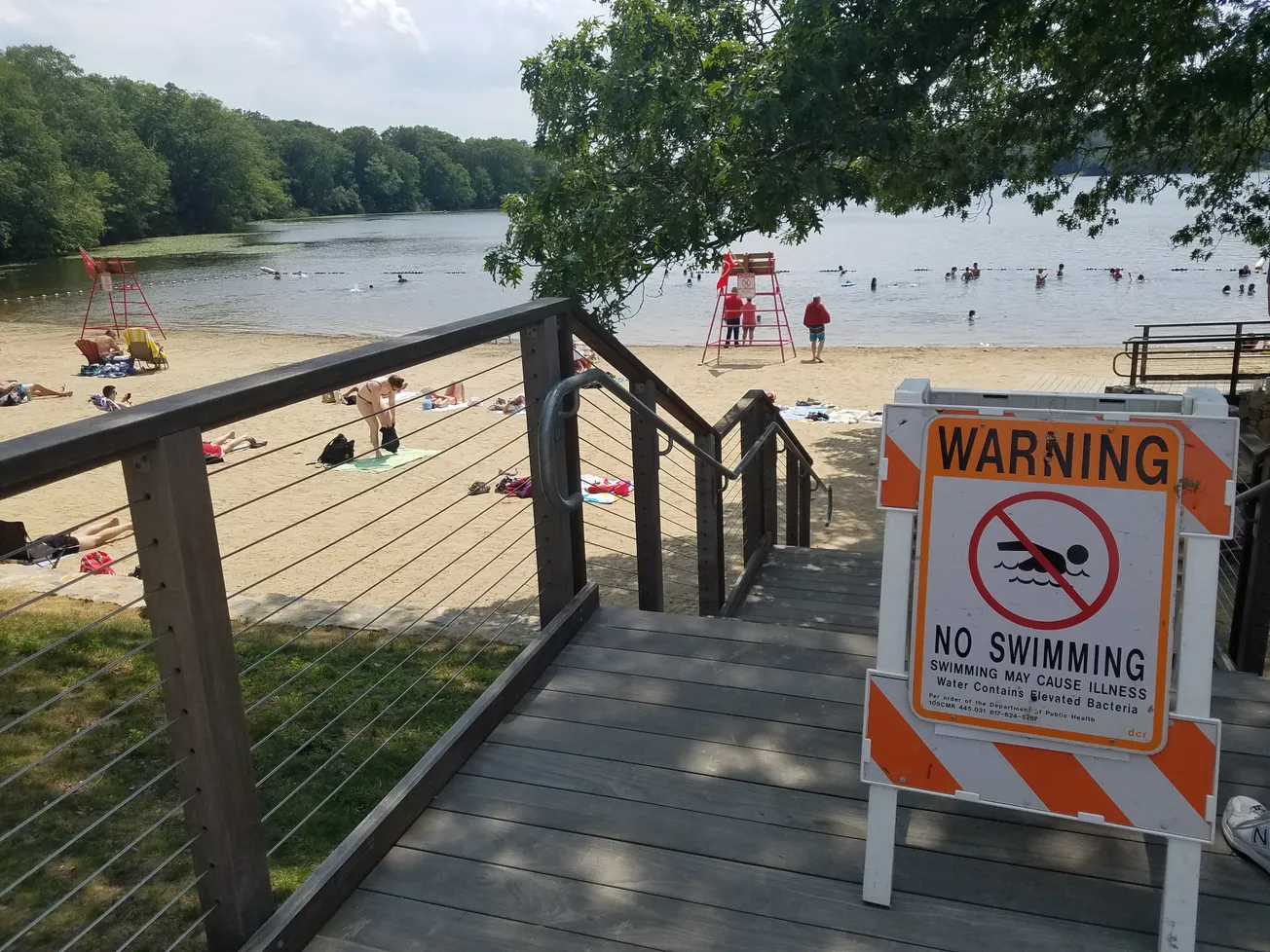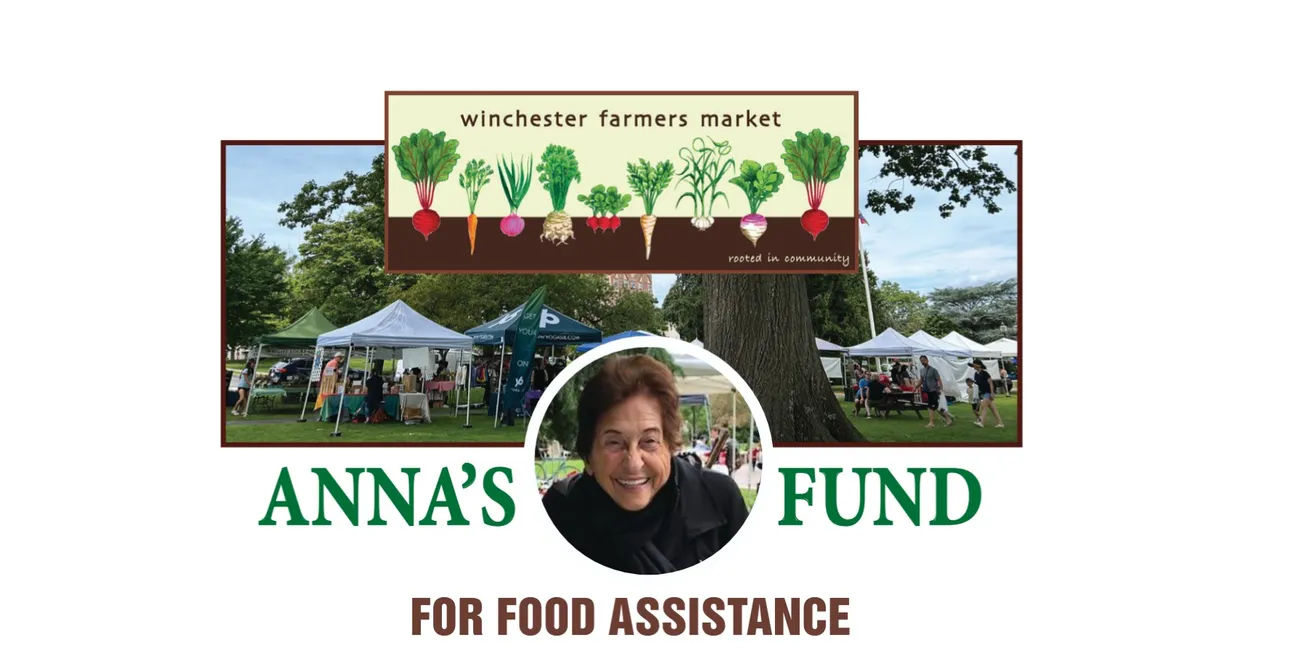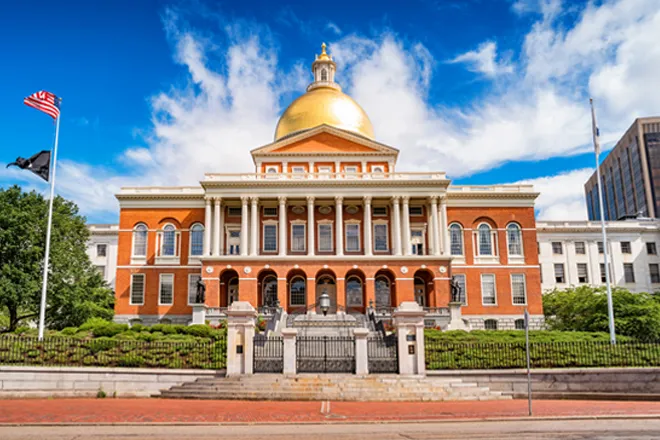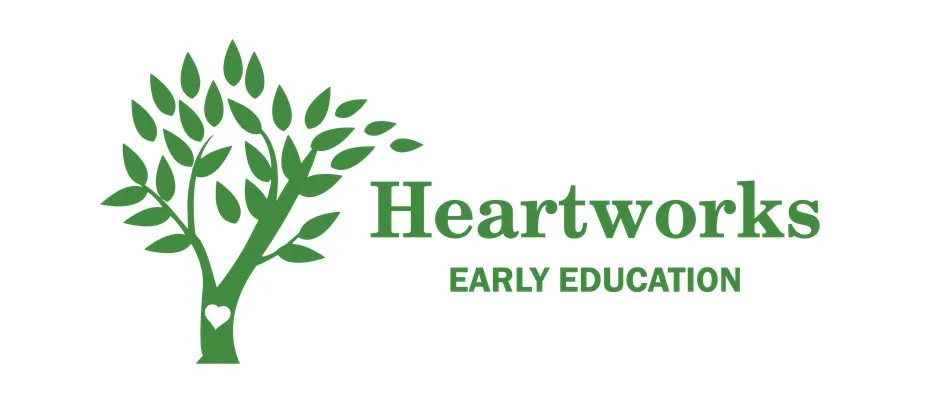Table of Contents
Winchester is joining the Nicotine Free Generation, thanks to a new Board of Health regulation that bans anyone born on or after Jan. 1, 2004 from buying tobacco/nicotine products within town limits.
The new regulation, passed unanimously on May 16, will take effect Jan. 1, 2025.
BOH Chair Dr. Gregory Sawicki said the idea behind the Nicotine Free Generation is to prevent access to tobacco products for younger people.
“Everyone knows that nicotine is addictive,” Sawicki said. “We know it leads to severe health effects. That’s well documented. Tobacco regulations minimize the impact of smoking and other tobacco use. It’s a way to reduce dependency on nicotine and improve smoking cessation. The best way to avoid becoming addicted is to not use.”
But companies have gotten smart and new products, such as e-cigarettes, vape pens and flavored tobacco, and clever marketing attract younger adults.
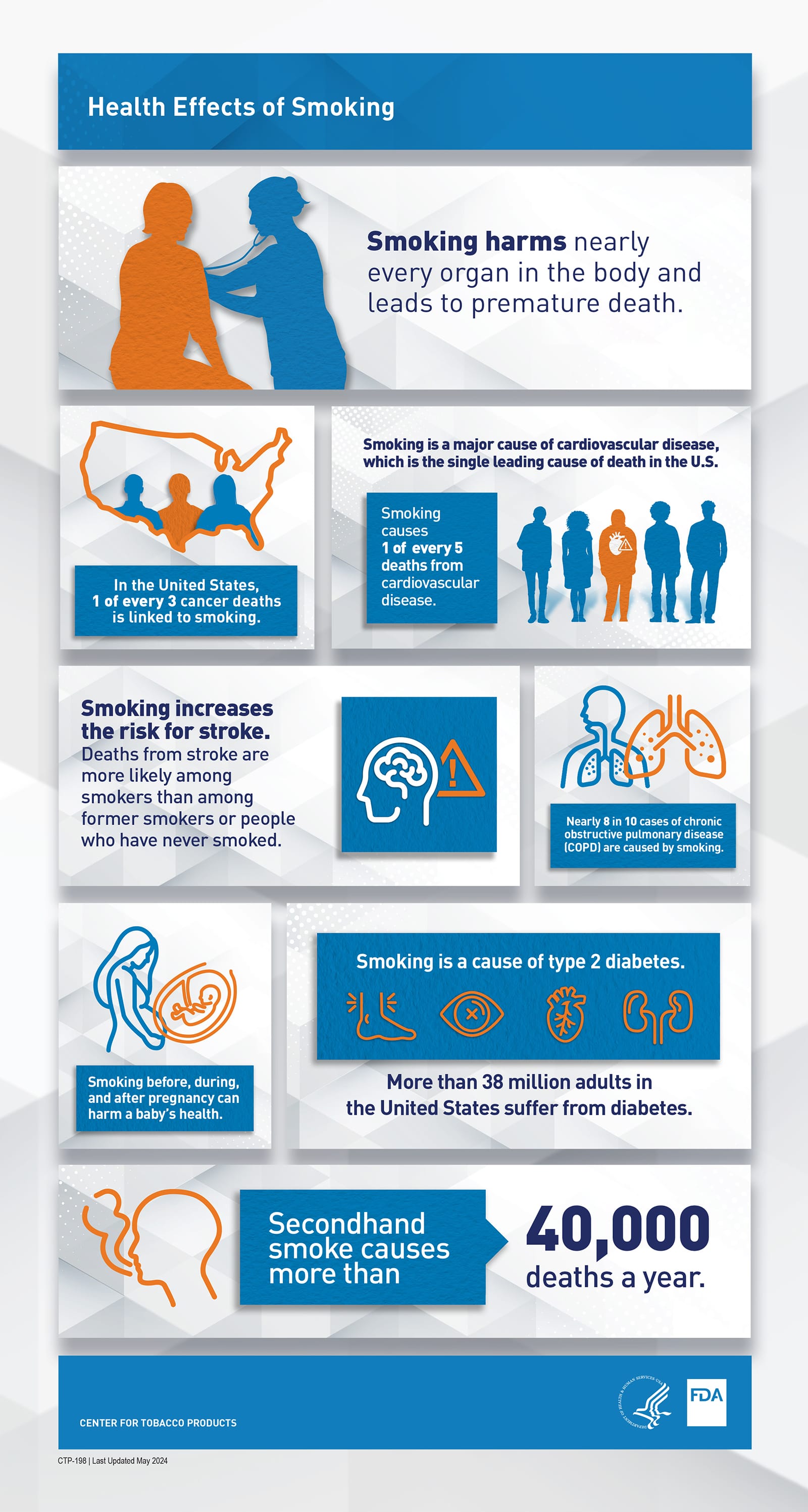
In 2018, Gov. Charlie Baker signed a measure that raised the legal age to purchase tobacco products from 18 to 21. Sawicki said that was largely due to cities and towns putting their own regulations in place, to the point where eventually, the state caught up and it became law.
“We recognize that the new regulation is only going on in our town,” Sawicki said, when asked if the Nicotine Free Generation is achievable. “But, if it’s passed by other towns, then you create regional areas and it gets harder [to buy tobacco products.] The goal is to get enough municipalities to enact this so the state will take it up as a statewide law.”
Maureen Buzby, regional tobacco control coordinator, oversees other area communities besides Winchester, including Malden, Medford, Melrose, Reading, Stoneham, and Wakefield.
She said four of her communities — Stoneham, Wakefield, Melrose and Malden — have also recently adopted the Nicotine Free Generation policy with the same effective date and the same birthdate restriction.
Brookline was the first municipality in the state to pass such a policy via a Special Town Meeting in November 2020. That bylaw had a Jan. 1, 2021 effective date with a Jan. 1, 2000 birthdate restriction.
The Brookline law
In 2021, Brookline became the first town in the U.S. to impose a tobacco sales ban based on a specific date.
After the sales ban went into effect, a group of retailers sued the town based on the idea that the 2018 law raising the minimum purchase age preempted the Brookline bylaw and violated the state Constitution’s equal protection rights.
When a lower court dismissed the case, the retailers appealed. The Massachusetts Supreme Judicial Court transferred the case from the appellate court to itself.
In March 2024, the SJC unanimously sided with Brookline, explaining the town’s bylaw only augments the state law in limiting the sales of tobacco to those under 21. The SJC also noted the bylaw doesn’t violate equal protection because it is related to legitimate state interest, which includes mitigating tobacco use by minors.
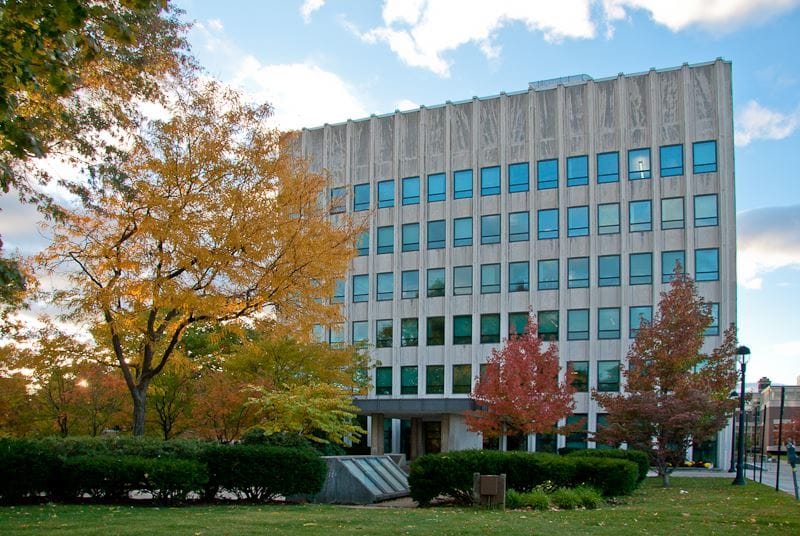
In an interview with NBC News10 Peter Brennan, executive director of the New England Convenience Store and Energy Marketers Association, said the group was looking into possibly appealing the decision to the U.S. Supreme Court.
“It’s a question of how else can we demonize this product,” Brennan said. “It’s about trying to be a trendsetter, trying to be first in the nation.”
He also noted that while the law targets tobacco, the rules for marijuana remain the same.
Sawicki said the ingredients in marijuana and cigarettes are two different things.
“The addictive component in cigarettes is nicotine,” he said. “That’s different than cannabinoid.”
Any opposition?
Sawicki said Winchester, along with other communities, have been waiting for the SJC decision before passing the May regulation.
But the BOH actually started looking at the idea last fall. He said on April 26, there was a public hearing and all of the town’s retailers were notified.
“We had 13 people who attended the hearing,” he said. “Nine people spoke and they all spoke positively. We did receive one letter from the National Retailers Association and had one email in opposition.”
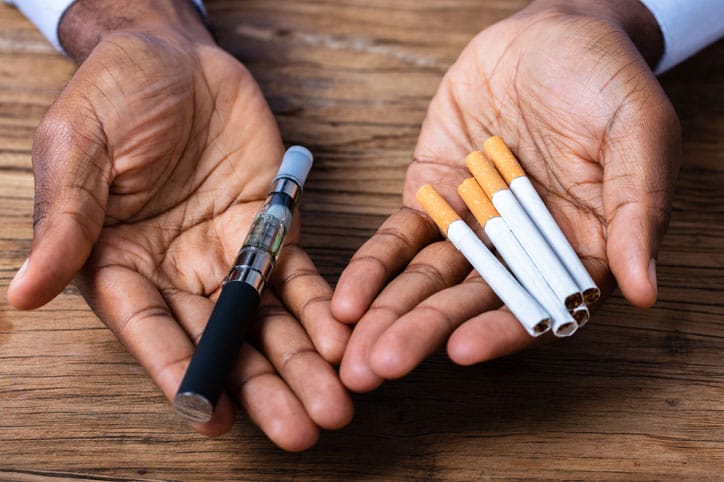
Sawicki said it’s not surprising retailers would be upset. However, it’s the BOH’s responsibility to oversee the public health.
“We, as a public health body, recognize the risks versus benefits of promoting policies that are sensible, but that protect the health of the population,” he said. “People might say that we’ve gone too far telling adults what to do, but we counsel adults about eating well, not smoking, not drinking in excess. But there are no health benefits to tobacco use. Period.”
The numbers
The Centers for Disease Control and Prevention agrees that preventing tobacco use by young people is “critical” to its reduction.
“Tobacco use is started and established primarily during adolescence,” the CDC website reads, adding 9 out of 10 adults who smoke daily first tried smoking by age 18.
The CDC went on to report that in 2023, 6.6% of middle school students and 12.6% of high school students reported using tobacco products. About 6.1% of middle schoolers and 12.7% of high schoolers also reported using multiple tobacco products, such as e-cigarettes or vape pens in addition to cigarettes.
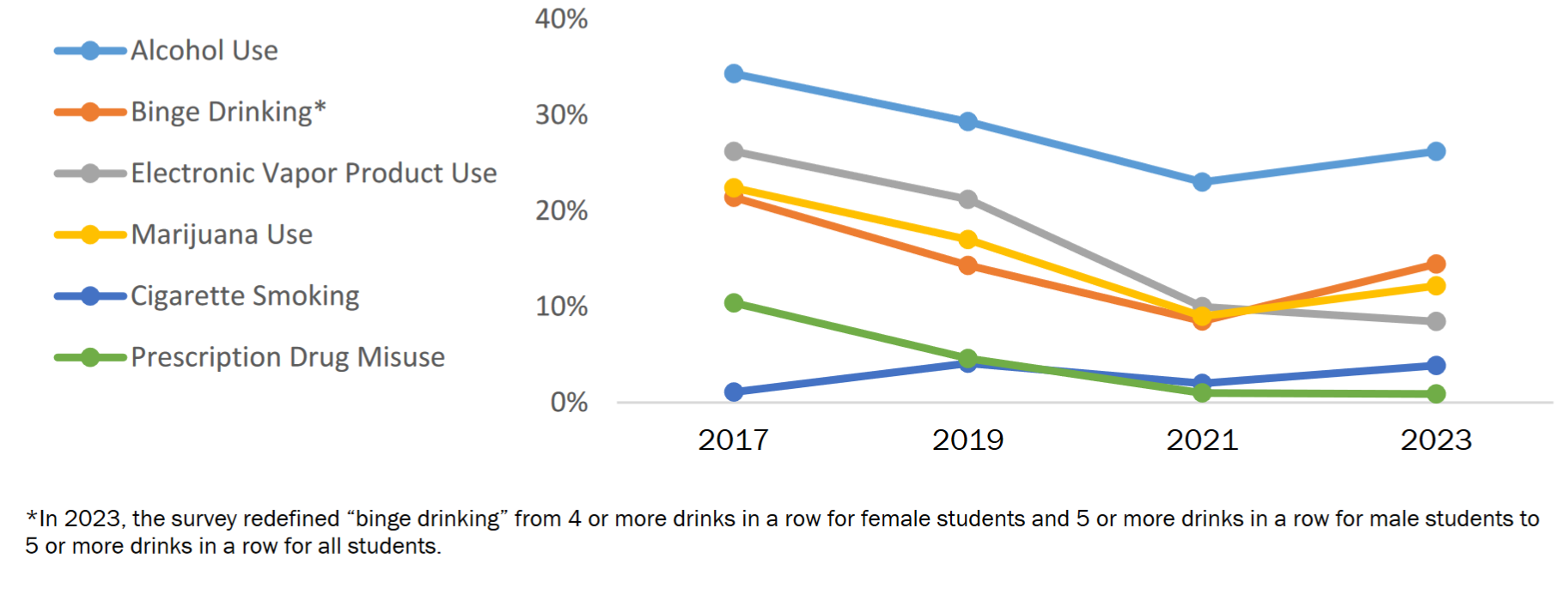
Winchester High School results from the Youth Risk Behavior Survey regarding substance use. COURTESY PHOTO/WINCHESTER PUBLIC SCHOOLS
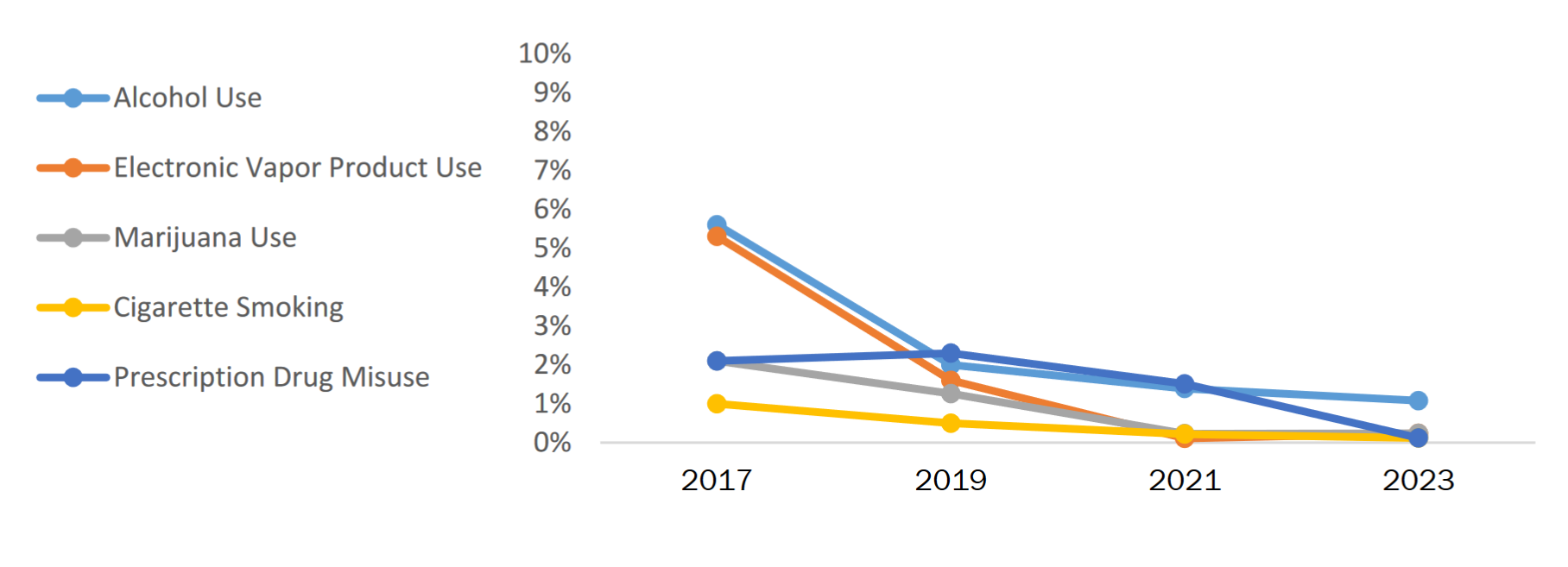
Middle School results from the Youth Risk Behavior Survey regarding substance use. COURTESY PHOTO/WINCHESTER PUBLIC SCHOOLS
In 2021 — the most recent year for youth tobacco statistics — 31% of Massachusetts high school students reported using e-cigarettes/vape products while 12% smoked. Only 5% of middle schoolers in 2021 were using e-cigarettes/vape products, but there were no statistics for smoking.
Winchester’s recently released Youth Risk Behavior Survey — taken in 2023 — shows 16% of the town’s high schoolers have used e-cigarettes/vape products while 9% smoke. Only 1% of middle school students use e-cigarettes/vape products while less than 1% smoke.
However, Winchester’s stats show a decrease from 2017’s survey numbers across the board.
Other laws
In 2018, Massachusetts joined California, Hawaii, Maine, New Jersey and Oregon in upping its tobacco purchase age from 18 to 21.
But other governments overseas have gone further, putting forth similar measures as those in Brookline.
In 2022, New Zealand passed a law that would impose a lifetime ban on anyone born on or before Jan. 1, 2009 buying tobacco. The law was due to be implemented by July 2024.
In March 2024, however, the law was repealed after a new coalition government was elected last October. A CNN story quoted Prime Minister Chris Luxon, whose conservative National Party entered a coalition alliance with the populist New Zealand First party and the libertarian ACT New Zealand party, defended the controversial move, saying he disagreed with parts of the policy and argued that a ban would result in a black-market boom.
New Zealand’s new finance minister also stated the revenue generated from cigarette sales would go towards tax cuts.
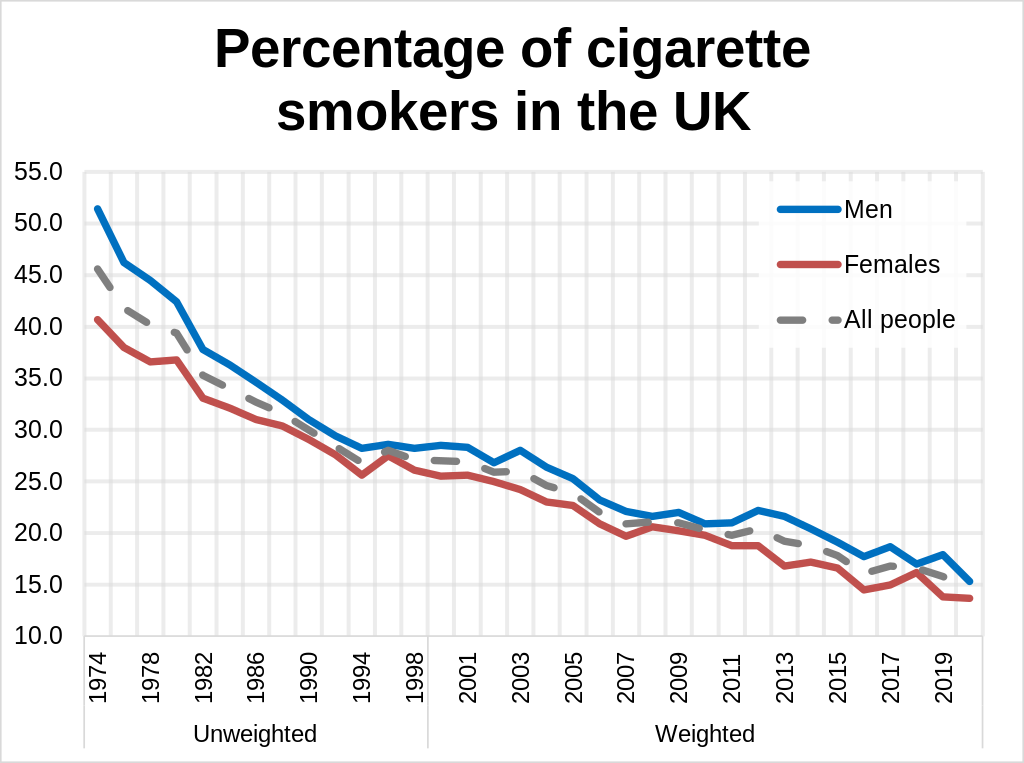
In 2023, the U.K. put forth a bill that ensures anyone turning 15 from 2024, or younger, will be banned from buy tobacco products. The Guardian stated the “legislation does not ban smoking outright, as anyone who can legally buy tobacco now will still be able to do so if the bill becomes law.”
The House of Commons was expected to take up the legislation this summer.
Portugal is also aiming to become smoke-free by 2040, with plans to ban the sale of tobacco products in bars and cafes.
As the world seems to be moving towards being smoke free, Sawicki addressed critics of anti-smoking bans.
“People have a right to smoke, but it’s not a fundamental right,” Sawicki said. “We’re the stewards of public health and protecting individual health. Nothing good comes out of smoking.”
Winchester News is a non-profit organization supported by our community. If you appreciate having local Winchester news, please donate to support our work, and subscribe to our weekly newsletter.



